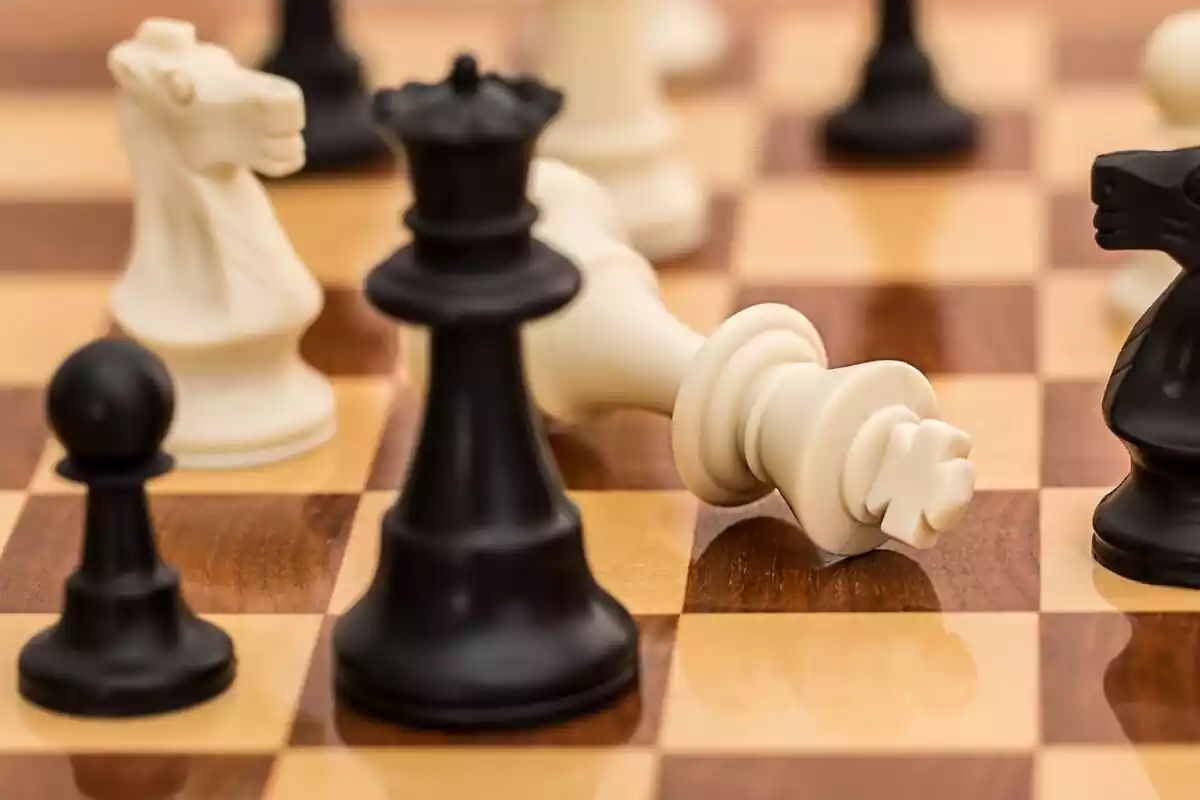
The systematic study of intelligence is making psychology professionals ask a lot of questions — one of the main ones being whether intelligence is singular or something that's multi-faceted. Currently, the idea that there are many types of intelligence is the speculation that receives most support.
The field of study surrounding types of intelligence, in large part, is all thanks to Howard Gardner. Based on Gardner's multiple intelligences and the ideas of other professionals in this field, as well as the popular concept of emotional intelligence, we'll dive into the types of intelligence that have been studied the most as of late.
An Intelligence definition based on Gardner's multiple intelligences
Although the concept of intelligence has changed since its beginnings, and professionals can't seem to agree on a singular definition of the term, we could say that intelligence is the cognitive ability that allows us to learn from experience to reason, solve problems and use abstract thought, among other things.
The Latin term intellegentia comes from intellegere, which means "person that knows how to choose." Many factors intervene in the selection process, like emotions or previous experiences, which makes it even more difficult to define exactly what it means to be intelligent.
What we do know is that there are so many people that are geniuses in one environment, while in others they struggle to excel. This brings us to the conclusion that there might be more than one type of intelligence and that these different types of intelligence are independent.
This is what Howard Gardner's multiple intelligences suggests in large part. Gardner is an American psychologist that received the Prince of Asturias Prize in 2011 in the Social Sciences category because his theory implied global education and psychology reforms.
Related: Personality Disorders: Types And Clusters
What does multiple intelligences mean?
As we mentioned before, the multiple intelligences theory suggests that intelligence is not singular but rather something plural with many variations. Part of what Gardener's theory of multiple intelligences brought to education is the idea that if we develop different interests and abilities as we grow up, then we're more likely to have different types of intelligence if we receive appropriate and diverse education from a young age.
This is why over time, other types of intelligence have been added to this American psychologist's original list of 8. This theory helps to broaden educational prospects although there is one setback since there is no universal standard.
Over the course of one's lifetime, certain people show more interest and improve their skills in certain activities, which could be interpreted as a tendency towards one specific type of intelligence. However, the opposite can also occur.
All people can develop different types of intelligence if we expose ourselves the right stimuli. Since we all have different interests and skills, it would be difficult for a person to develop all of the types of multiple intelligences, or rather, we can't develop them all to the same extent. Even so, all intelligences are interconnected and compliment one another.
In fact, many studies show how each type of intelligence corresponds to others. This means that although these types of knowledge differ, intelligences are still interdependent to some extent.
The 10 Types of intelligence
Accepting the idea that intelligence isn't singular, and assuming Gardner's criteria regarding interdependent multiple intelligences is correct, we'll take a closer look at the different types of intelligence currently accepted by psychologists.
1. Logical mathematical intelligence
Out of all of the kinds of intelligence, this is the one that's the most similar to the 'g factor' (general intelligence) concept, proposed by Charles Spearman. The ability to calculate, generate models, verify hypotheses, think logically, and reason using deduction and induction.
For example, scientists usually have this kind of intelligence, and that's why it's easy for them to identify problems and test them using the scientific method. One way of measuring this is by solving math problems or pattern games.
Since logical mathematical intelligence was the most widely represented type of knowledge for a long time, in education and psychology, other ways to solve problems, create hypotheses, and plan were dismissed.
Also, since intelligence was understood as something concrete defined by math and logic skills, it was used as the base for deciding intelligence. Although this definition continues is still used in some contexts, now other skills that are equally as important in accomplishing tasks are also valued. And in part, this is all thanks to Gardner's multiple intelligences theory.
Related: 9 Types Of Functions Easily Explained
2. Visual spatial intelligence
People with visual spatial intelligence can create a 3D mental pictures and visualize with precision, perceive details, draw and create outlines all using their minds. Ultimately, this is the ability to view the world and the objects that it's made up of from different perspectives.
This type of intelligence is particularly important for photographers and architects, designers or decorators. In general, these people have highly developed visual spatial intelligence which allows them to generate a mental picture of whatever they want to create in real life.
Likewise, activities related to matching measurements like size, space, and distance (from puzzles to labyrinths), stimulate the development of this type of intelligence.
3. Linguistic intelligence
Using a broad and effective assortment of vocabulary and understanding the order and meaning of words are all characteristics of linguistic intelligence. Communication professionals, writers, politicians, and people that work in sales are all highly intelligent in this sense.
People that work in these fields need linguistic intelligence for their professions, and this requires an extensive vocabulary as well as the development of other types of intelligence like interpersonal and emotional understanding.
These other types of intelligence help since besides using the right words, linguistic intelligence is based on one's capacity to communicate using these. You can evaluate linguistic intelligence through written text, poetry, debates, or games with questions and answers, as well as many other verbal tests.
4. Kinesthetic intelligence
People who are highly kinesthetically intelligent have an incredible capacity to express ideas and feelings through the body, to fix problems using their hands, and carry out activities that require flexibility, hand-eye coordination, and balance.
Because of the previously mentioned reasons, this type of intelligence is called 'kinesthetic.' Kinesthesia is the study of movement and the ability to relate with the body schema, space and time.
Dancers, soccer players, sculptors, surgeons, and actors are all usually blessed with this kind of intelligence. Someone who is a good dancer or actor, or that has other skills related to body movement probably has kinesthetic intelligence.
5. Musical intelligence
This is another type of intelligence that, like many others, requires a stimulus for its development. However, some people have a special gift for recognizing melodies or playing instruments from birth.
The ability to perceive, transform and define music, also called "having a good ear," is a common trait among musicians, composers, and orchestra directors. Evaluating this is somewhat more complex than other types of intelligence. The representation of musical themes through sounds, coming up with a rhythm, or reproducing songs are some evaluation techniques.
In some contexts, kinesthetic and musical intelligence combine to form artistic intelligence.
But, artistic intelligence isn't on Gardner's list of original types of intelligence since art is a creative activity that can be manifested through many types of intelligence. Even so, for educational purposes, teachers refer to musical intelligence.
Related: Study Music: Perfect Albums For Concentration
6. Naturalistic intelligence
The main trait of naturalistic intelligence is a great interest in observing one's environment. Highly developed individuals in this respect, constantly reflect upon the importance of nature.
These people are gifted when it comes to differentiating between species, classifying or caring for them. Otherwise, they might know everything about a specific species since they are passionate about plants and animals.
The ability to embody each of nature's details on canvas, through sculpture, or design, are also factors involved -of course, visual spatial and artistic intelligence are also crucial in this case, complementing the naturalistic aspect.
If someone likes to go on wilderness excursions, and they enjoy taking care of plants and animals and value environmental conservation, this might mean that they have naturalistic intelligence. Also, promoting these practices from a young age along with conservation culture and nature exploration, are all sure-fire ways to develop naturalistic intelligence in children.
Related: The 17 Most Endangered Species In The World
7. Intrapersonal intelligence
Intrapersonal intelligence is one's ability to dig deep to form a precise self-image. In other words, an image that corresponds with the way that we want to see ourselves and how we want to be seen by others. Abilities such as self-understanding, self-reflection, self-care, and introspection help us to meet our needs and detect characteristics that make us stand out from the rest.
Besides, this is the type of intelligence related to awareness regarding feelings and emotions, and therefore, it's connected to other types of intelligence such as interpersonal.
People with high levels of intrapersonal intelligence have a great understanding of themselves, and therefore they can regulate their behavior by managing their emotions more efficiently. Psychology professionals, writers, and philosophers all score high when it comes to this type of intelligence.
On the same note, to develop intrapersonal intelligence, it's crucial to promote certain skills from a young age, like self-control, the ability to manage frustration, self-care, and assertive communication.
8. Interpersonal intelligence
This type of intelligence alludes to the ability to understand others and empathize with people using a particular level of sensitivity. Individuals that are highly capable of interacting with others efficiently have interpersonal intelligence.
One's ability to interpret the words, actions and the intentions of others seem to be the keys to this type of intelligence. But, understanding verbal cues isn't the only important aspect here.
Knowing how to respond appropriately to certain situations and having control over your gestures also has a significant impact on the success of these relations. Politicians, actors, and education professionals are usually at an advantage when it comes to interpersonal intelligence.
Those with this type of intelligence make excellent health professionals, as is the case of psychologists, psychiatrists and doctors since working this field calls for a certain amount of sensitivity and empathy.
From a young age, you can promote interpersonal skills through shared living environments, by exchanging opinions and via assertive communication.
Related: Enneagram Types: Your Personality Based On This Test
9. Existential intelligence
Introspection when it comes to the world and our surroundings is the distinguishing mark of existential intelligence. In other words, contemplating the here and now, existence, the reason why certain events happen and trying to make sense of everything. These are all characteristics of people that have high levels of existential intelligence. Thoughts regarding what happens after we die or the meaning of life is, are also common.
People that are highly intelligent in this area go beyond the present searching for transcendence, creating their own hierarchy of values and promoting it through meditation and dialogue. This type of intelligence also works to strengthen interpersonal and intrapersonal skills.
You can promote this type of intelligence through reading and learning about philosophy, and contemplating open questions about the meaning of things and how you experience them. All of this can be adjusted depending on the age of the person and can also be taken into consideration from an academic perspective.
Although initially, Gardner's multiple intelligences doesn't mention this skill, in some contexts, it's recognized for educational purposes.
10. Emotional intelligence
Daniel Goleman was the precursor to this type of intelligence study. Emotional intelligence is a combination of intrapersonal and interpersonal skills. This describes how we understand ourselves and others, control our emotions and know how to detect them in others which improves social relationships, well-being, self-confidence, and confidence in other areas of our lives.
Emotional intelligence is made up of five elements: emotional self-control, self-motivation, emotional self-awareness, empathy, and social abilities. These are reflected in successful behaviors, no matter what situation we might find ourselves in.

Multiple intelligence test
Tests are tools that help you to evaluate something, and therefore, you can apply different types with different goals. In psychology, this almost always has to do with assessing abilities and personality types.
These tools use hypotheses, experiments, and case studies, and statistical parameters prove their validity and trustworthiness.
Since they are made in very specific contexts with a particular population, the tests aren't always useful to everyone. They have to go through different validation and standardization processes.
To evaluate multiple intelligences, you can check out this multiple intelligence test at personalitymax.com to see what your top abilities are. Besides, Walter Mackenzie created a survey for primary school teachers in 1999; and in 1984, David Kolb created his own test for learning styles.
Besides these tests, there are loads of quizzes online that can tell you which of the types of intelligence is dominant for you. Although these tests can help guide you and they might use Gardner's theory as a base, they aren't official multiple intelligence tests, which gives them little practical value and makes them highly unreliable.
References
Brunal, B. (2014). Evaluacióndelasinteligenciasmúltiplesyestilosdeaprendizajeen Primaria. Tesis de Máster Universitario en Neuropsicología y Educación, Universidad Internacional de la Rioja.
Gardner, H. (1983). Frames of Mind: The Theory of Multiple Intelligences.
Gardner, H. (1995). Inteligencias Múltiples: la teoría en la práctica. Barcelona: Paidós. Fondo de cultura económica: Mexico.
Pérez, E., Beltramino, C., Cupani, M. (2003).Inventario de autoeficiencia para inteligencias múltiples. Fundamentos teóricos y estudios psicométricos. Laboratorio de Evaluación Psicológica y Educativa. Universidad Nacional de Córdoba (Argentina), 3: 60.
Pérez, E. y Medrano, L. (2007). Inventario de autoeficacia para inteligencias múltiples revisado: un estudio de validez de criterio.Avances en Medición, 5: 105-114.
